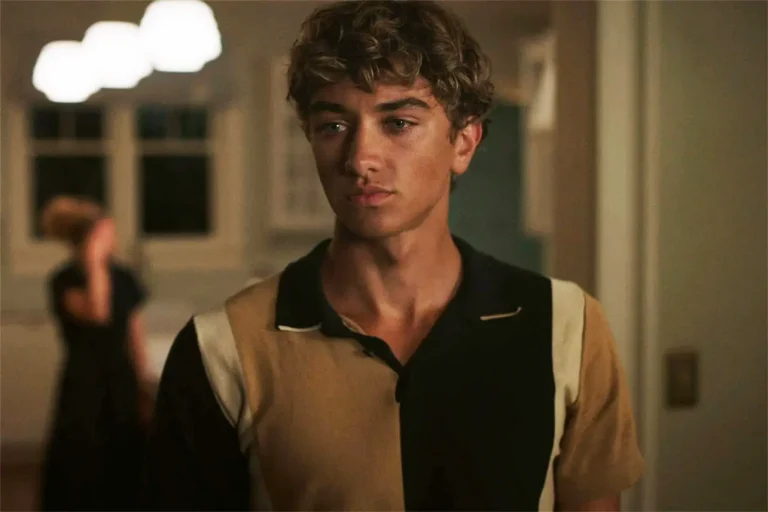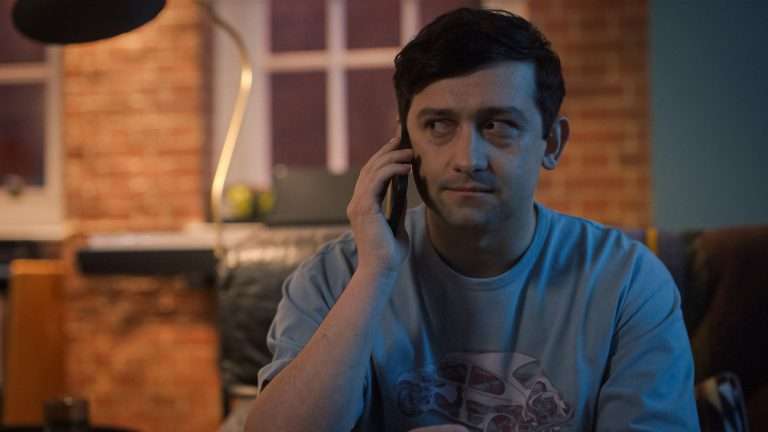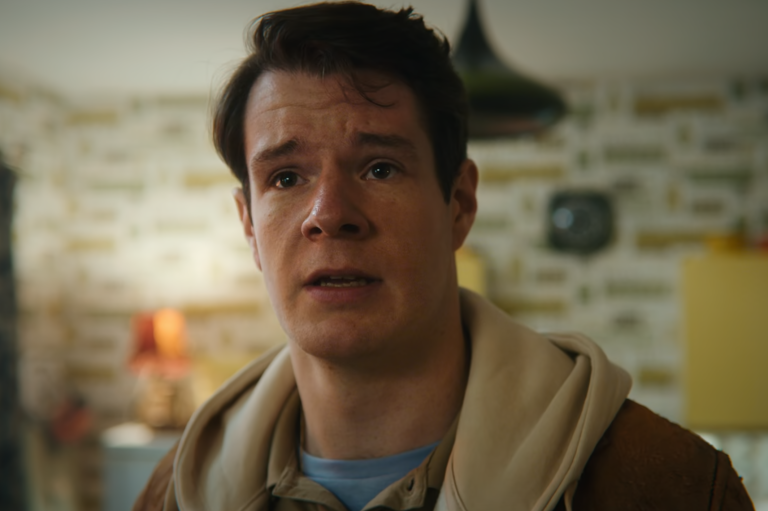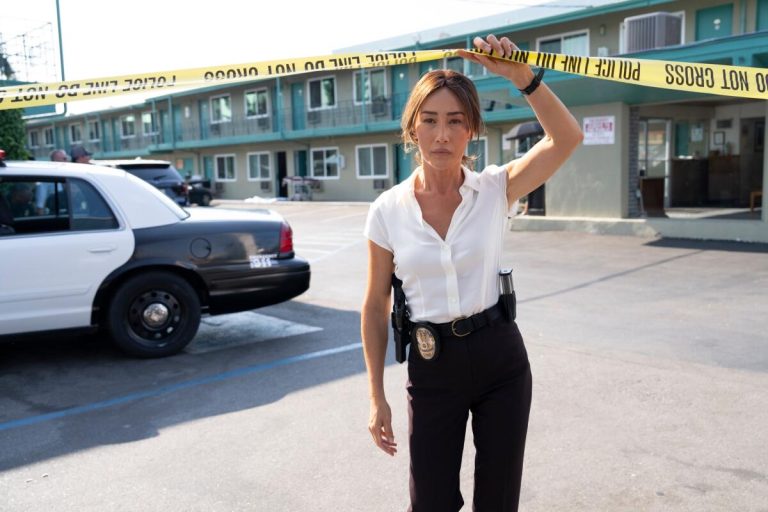With many discovering Park Chan-wook’s seminal film, Oldboy (2003), in NEON’s new 4K restoration, there’s no better time to try to understand why it has resonated for the past two decades. The film responsible for the explosion of South Korean Cinema globally tackles the cathartic theme of revenge in the most hauntingly subversive manner. It opens with protagonist Oh Dae-su (Choi Min-sik), a boorish drunk late for his daughter’s birthday. Before he can get home to celebrate, he is kidnapped and imprisoned in a private one-room cell.
For the next 15 years, Oh Dae-su plans his escape and revenge on the mystery man who has separated him from his daughter and murdered his wife. Before he can escape, Oh Dae-su is set free and tasked by the man responsible for uncovering why he was imprisoned in the first place.
A chase and mystery thriller all tied into one, as Oh Dae-su pursues the truth and revenge. This drive for answers unravels a whole other plot of vengeance (in this the second film of Park’s Vengeance Trilogy) related to its antagonist, the infamous Lee Woo-jin. Perhaps the most profound answer to why Oldboy has stood the test of time lies with Lee Woo-jin. The villain acts as an almost god-like figure in his high-rise penthouse, as enigmatic as the mystery behind the narrative. However, it is in the climax the mystery can claim to have such a searing grasp on the viewer’s mind.
At that moment, Lee Woo-jin delicately peels back layers of what Oh Dae-su so far has uncovered. For Lee Woo-jin, this is a revenge plot decades in the making from when he and Oh Dae-su were schoolmates, or as Oh Dae-su puts it, Old Boys. This is used as a colloquial term to describe a former schoolmate or colleague, yet the title and, in this case, the school the two men went to, Evergreen Old Boys High School, has a deeper resonance with Lee Woo-jin and his goals.
Naturally, Old Boy (with spaces) is the name of the manga from which the film is adapted, though it deviates considerably. Even with that information, the title plays an integral part in understanding the psyche of the film’s antagonist. As the adage goes, revenge is a dish best served cold, and in the case of Lee Woo-jin, he allows this singular goal of revenge to fester long enough so that he may finally deliver a terrible blow to Oh Dae-su over 20 years later.
He’s so focused on this path that Lee Woo-jin needs to put Oh Dae-su through 15 years of isolation for his plan to strike ideally. Being old boys, Lee and Oh Dae-su are classmates. On the day before he is to relocate to Seoul, Oh Dae-su discovers Lee Woo-jin is in an incestuous relationship with his sister Lee Soo-ah. This revelation spreads like wildfire in the school, with Lee Soo-ah rumored to be pregnant at the hands of her own brother. Lee Soo-ah kills herself by throwing herself off a bridge before Lee Woo-jin.
As seen through the narrative, Lee Woo-jin is metaphorically left frozen in time, reliving the moment of his sisters’ death continuously. Lee Woo-jin chooses to blame Oh Dae-su and his rumor-spreading tongue for her death. The man he becomes years later has only one singular goal in life: to turn Oh Dae-su’s existence into hell.
Yoo Ji-tae, as such, portrays Lee Woo-jin with an air of arrogant sincerity and hiding just the coldest sociopathic tendencies. His performance is another key to understanding the significance of the film’s title. Initially, Park Chan-wook had sought to cast the age-appropriate Han Suk-kyu to clash with his lead, Choi Min-sik (Oh Dae-su). The two performers were already familiar as rivals in several films. However, Choi eventually suggested Yoo for the role.
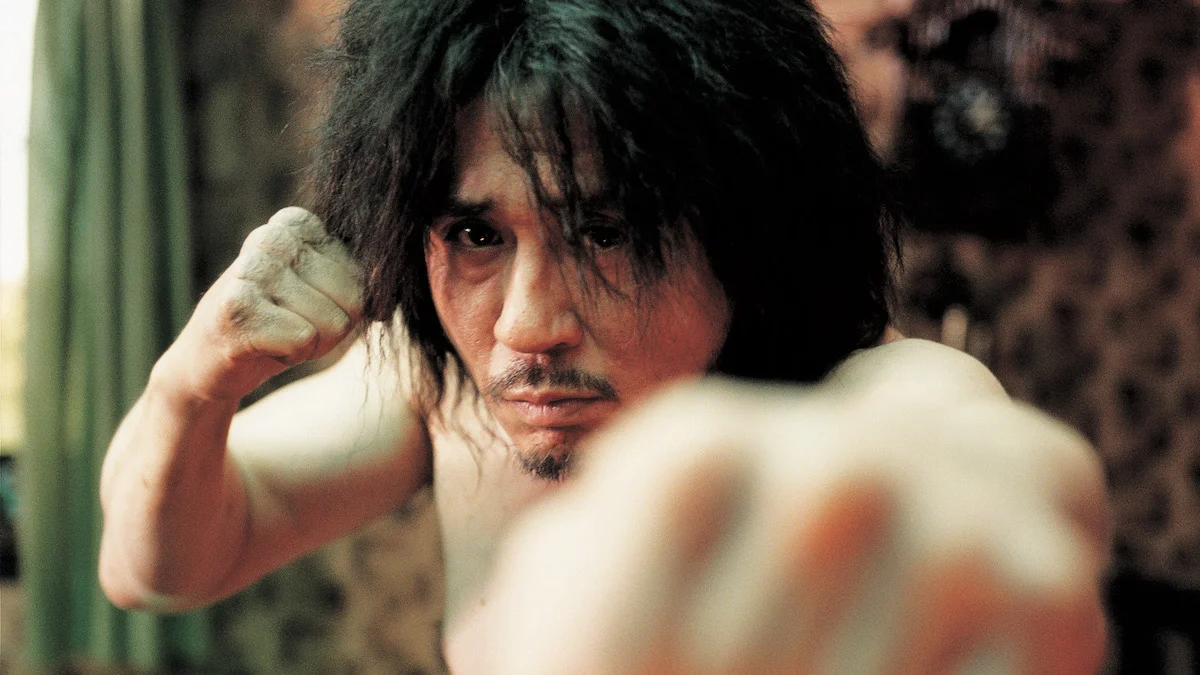
Though director Park was initially hesitant due to the age gap between two actors who had to be peers (or Old Boys), this proved to be a casting coup that enhanced the narrative’s subtext. Yoo Ji-tae brings a charming smile to the role that instantly collapses into a sinister blend of laughter and tears. We witness this in a dexterous performance in close-up, as Oh Dae-su begs for mercy at the feet of Lee Woo-jin.
Yoo reaches far deep into this emotional whirlwind to sell the heart of their intertwined fates and his characters Shakespearean tragedy. Ultimately, Lee Woo-jin reveals the masterstroke of his plans to a destroyed Oh Dae-su. Through the acts of hypnosis during his imprisonment, Oh Dae-su, once freed, is set on a course to figure out why he was captured. In this path, he finds Mi-do, an innocent woman who becomes his confidante and lover. Yet as Oh Dae-su makes his way to the top of the high rise into Lee’s lair, he is actually facing the gates of hell below. Lee Woo-jin painfully reveals that Mi-do is, in fact, Oh Dae-su’s daughter, whom he was taken away from years ago.
An eye for an eye, a lover for a lover, a daughter for a sister. By this point, Lee Woo-jin threatens to out this secret to Mi-do but chooses not to at the sight of a pathetic Oh Dae-su. Oh Dae-su begs and threatens (much like he did his captors in the prison) but ultimately rips out the tongue, which Lee Woo-jin blames for his sisters’ supposed pregnancy and death.
Much like the other characters and the audience, Lee Woo-jin realizes that without Vengeance, his life has no purpose. Lee Woo-jin lets Oh Dae-su have a sliver of mercy and keeps the secret. All he can continue to do is to be haunted and frozen by that moment when his sister dies, and then he kills himself. With his youthful looks contrasted to those of a haggard Choi Min-sik, Yoo Ji-Tae showcases how the cold path of revenge crystallizes his character in time.
What Yoo Ji-tae ultimately brings is the answer to the title. Far more than the fifteen years his rival is in prison, Lee Woo-jin is imprisoned at the moment where his desire for revenge was birthed. As such, Lee Woo-jin remains ever-young in appearance. He is as Evergreen as the name of their shared school and the alias with which he stalks Oh Dae-su.
In contrast, Park Chan-wook showcases how Oh Dae-su’s last attempt to preserve his sanity and humanity ages him beyond recognition. Using the same hypnotist, Oh Dae-su begs for the secret he now knows to be wiped from his memory. His psyche is split between his real self and the Monster that holds the mystery. The monster will age and die with it, the hypnotist claims. In the end, as Oh Dae-su is reunited with Mi-do, his greying hair indicates that the monster is slowly aging toward his death.
Sadly, Dae-su may not, or worse, still be aware of the truth between him and Mi-do. Compared to him, Lee Woo-jin’s path has been direct. He has lived as both the man walking through the hellfire of vengeance and the monster responsible for his actions that equally took his sister’s life. Lee Woo-jin has metaphorically staved off age in the process. In essence, Lee Woo-jin is the Oldboy in the film’s title. He remains one of cinema’s greatest villains and one of the rare ones who, despite his demise, ends up as the winner.
Lee Woo-jin, the Oldboy, encapsulates the questions Park Chan-wook seeks to ask with this film. The questions on the cost one must pay when pursuing an eye for an eye, or in the case of this film, tongue for a tongue, sister for a daughter, and lover for a lover. Lee Woo-jin is that futile endeavor and cost which Park Chan-wook’s Vengeance Trilogy warns us against.

